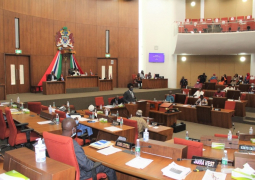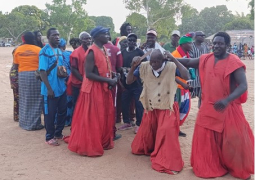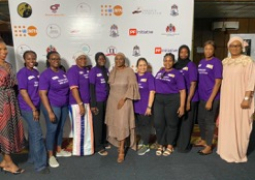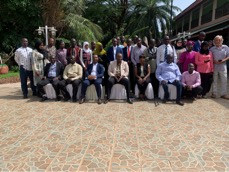
The event held at the Senegambia Beach Hotel, was aimed at enhancing the enjoyment of human rights for Persons with Disabilities. It also seeks to address issues concerning Persons Living with Disabilities (PLWDs), highlight challenges and propose concrete recommendations and strategies geared towards fulfilling their rights and expedite the implementation of the PWDA 2021.
The Persons with Disability Act 2021 mandates the State to provide essential services to persons with disabilities; including healthcare, rehabilitation, education, training, and the establishment of facilities for children with special needs, ensuring the allocation of adequate resources.
At the evet, Emmanuel Daniel Joof, chairman of the National Human Rights Commission (NHRC), emphasised the need to enhance the enjoyment of human rights by Persons with Disabilities (PWDs).
“Despite the passage of the Persons with Disabilities Act (PWDA) in 2021, which mandates the government to allocate adequate budgetary resources for its effective implementation, progress has been minimal. This forum facilitate dialogue between state and non-state actors, including stakeholders from various ministries, departments, agencies, the private sector, and the Gambia Federation of the Disabled.”he added.
Joof revealed that with support from UNICEF, the NHRC, in collaboration with the National Council for Civic Education (NCCE) and the Ministry of Gender, Children and Social Welfare, recruited a consultant to develop a disability-compliant budgeting guideline.
That guideline, he added, aims to support the operationalisation of the Act, pointing out that the Persons with Disabilities Act 2021 is a comprehensive piece of legislation that covers a wide range of rights. “It not only prohibits all forms of discrimination on the basis of disability, but also compels the state to ensure equal enjoyment of those rights and provide effective legal protection against discrimination. The Act includes provisions for healthcare, social support, accessibility to public and private services and buildings, rehabilitation, education, and vocational training.”
Filly Nyassi, a representative from the Ministry of Gender, stressed the need for inclusive budgeting to be truly effective and to align with the Convention on the Rights of Persons with Disabilities (CRPD).
“Simply allocating funds for programs targeting persons with disabilities is insufficient; these programs must adhere to the principles and requirements outlined in the CRPD.”
Nyassi explained further that disability mainstreaming is the process of incorporating the rights and needs of persons with disabilities into the planning, implementation, and evaluation of actions, programs, projects, and budgets.
That approach, he added, ensures substantive equality, promotes the inclusion of persons with disabilities in laws, policies, and practices, and prevents discrimination.
Armand Gnahore, a representative of UNICEF, highlighted his organisation's commitment to advancing the rights of people living with disabilities in The Gambia.
He revealed that UNICEF, in collaboration with its partners, is supporting the implementation of the 2021 Disability Act, noting the government's dedication to enhancing the rights of persons with disabilities.
Gnahore expressed pride in contributing to and supporting efforts to ensure that the rights of people with disabilities are respected. He thus encouraged everyone to actively participate in those initiatives to create an inclusive society where everyone's rights are upheld.
Magistrate Muhammed Krubally praised the National Human Rights Commission (NHRC) for their vision and called on the government to increase support for people living with disabilities.
Krubally, while stressing the importance of collective effort to ensure the Disability Act is upheld, adding that that would make sure the fundamental human rights of individuals with disabilities are respected.
Read Other Articles In National News
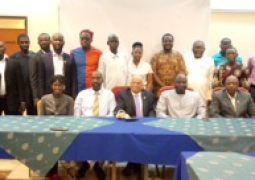
Climate Change Secretariat, AIUWA validate LTS academic programs
May 31, 2022, 12:16 PM
